Four Problems With Superhero Movies
Are superhero movies, which have enjoyed immense success over the past decade, in trouble?
With the recent release of Guardians of the Galaxy Vol. 2, much attention has turned toward the Marvel franchise. Conversations, thoughts, and opinions about the movie abound. And the reactions are mixed to say the least.
 Some loved it.
Some loved it.
Some, like me, thought it was decent but ultimately fell short of expectations.
Some saw many problems.
In the wake of the myriad reactions, yesterday Stephen Burnett offered thoughts on why the MCU (Marvel Cinematic Universe) needs to be fixed. I’m a huge fan of Marvel, and I’ve thoroughly enjoyed their movies, counting several among my all-time favorites. However, Stephen’s post raised excellent points. His view of Marvel’s need to shift focus started me thinking about the superhero genre as a whole.
And the more I thought about it, the more worrisome trends I noticed.
So while there’s much attention on superhero flicks, let’s consider some of the problems present.
1. Formulaic storytelling.
One the main points in Stephen’s post was the lack of originality coming out of the MCU corner of Hollywood. Unfortunately, I think this is a trend plaguing or positioned to plague superhero films across the universes.
For example, Justice League could easily become DC’s version of The Avengers and try too hard to mimic the reasons for its success rather than create compelling reasons for its own unique success.
To an extent, stories will be formulaic for the simple reason that certain methods work and others don’t. However, I think Hollywood is prone to a cookie cutter approach, tossing out movies with essentially the same core elements, just draped with different trappings.
 As a storyteller, I understand the intention. If something works (and box office numbers certainly proclaim monetary success), why bother tweaking the approach?
As a storyteller, I understand the intention. If something works (and box office numbers certainly proclaim monetary success), why bother tweaking the approach?
Perhaps that perspective misses the point.
What if, instead of factory-made stories that roll endlessly off the assembly line without anything significant to differentiate them, the approach focused on innovation?
What if instead of finding a castle of cash and hunkering down, the formula should be to forge new paths and explore new frontiers? After all, didn’t some of the most successful tales do just that?
Looking at Lord of the Rings, Harry Potter, and Hunger Games to name a few outside the superhero sphere.
2. Humor at the sacrifice of seriousness.
 Certainly a point of contention when considering Marvel films. Marvel’s method has been to inject healthy doses of wit and levity into their stories, and so far it’s worked. Audiences enjoy the comic relief, and quick wit has become an MCU hallmark.
Certainly a point of contention when considering Marvel films. Marvel’s method has been to inject healthy doses of wit and levity into their stories, and so far it’s worked. Audiences enjoy the comic relief, and quick wit has become an MCU hallmark.
However, with Guardians 2, many humorous parts felt forced, as if the movie was trying too hard to fit the Marvel mold and thus ended up cracking it. Some of the punchlines worked, some rattled like a container of spilled silverware.
However, this problem isn’t inherent to the MCU. I adore the Dark Knight trilogy. But one scene in the third movie has always bugged me. When Selina shows up and saves Bruce from Bain. She blasts Bain with the guns on the Batcycle and then offers up a witty comment that clashes with the tone of the act, as if to soften the weight of casually blowing the villain into oblivion.
**spoilers** Another notable instance occurred in Guardians 2, when Yondu, Rocket, and Groot blazed a path of death through Yondu’s rebellious crew. The lighthearted tone of the music completely undermined the gravity of the situation.
I think that’s the point. In order to include violence and show lots of rough action, movies infuse humor to counter the grittiness and heavy themes. The practice is becoming more prevalent and ultimately undermining the consequences such violence ought to portray.
3. Cardboard villains.
In this realm, DC has the edge on Marvel, and I’m not considering TV shows (where DC also shines). Generally, DC tries to carve its heroes, giving them contours and definition rather than flat personalities and backstories, which Marvel’s guilty of.
Even so, DC’s villains often fall short of achieving truly legendary status. At the end of the day, most villains in superhero stories find themselves underdeveloped and underappreciated, there to provide an obstacle and target for the hero rather than enjoying an individualized purpose.
 Two exceptions (one from DC and Marvel to show I’m not biased) are The Joker and Loki. Brilliant. Compelling. Unique.
Two exceptions (one from DC and Marvel to show I’m not biased) are The Joker and Loki. Brilliant. Compelling. Unique.
Unfortunately, their dazzling characterization hasn’t trickled down to the villains on the lower ladder rungs.
As an aside, one reason I found Captain America: Civil War fascinating was because it attempted to step out of the box, pitting the teams against each other rather than against a hugely powerful antagonist. (Though of course Zemo manipulated them.)
4. Lack of consequences.
Let’s dub this one Agent Coulson Syndrome, a particular affliction of the MCU. When one person thought dead is brought back to life, that opens the door to a flood of possibilities. All of which, while perhaps intriguing at the outset, ultimately erode the potency of any future storylines.
 Because how can stakes be meaningful if the hero can burst back to life at some point? What far-reaching consequences are there?
Because how can stakes be meaningful if the hero can burst back to life at some point? What far-reaching consequences are there?
None.
Certainly, emotional, mental, relational impacts also play vital roles in creating a connection to the main characters. But if the hero is never truly in danger, what is he or she really sacrificing?
And if the point of the story is to explore the cost from an angle other than death, that should drive the entire story. Too often the emphasis favors pulse-pounding action and titanic clashes that ultimately glimmer like a spark before puffing out into fleeting wisps of smoke.
The villains, action, battles always strive to be more impressive. Yet where is the threat when superheroes are virtually indestructible?
The superhero genre has churned out plenty of box office hits, but the quality of storytelling is on the decline. Hopefully producers will begin focusing more effort on blazing exciting new trails that leave audiences challenged, thrilled, and delighted.
What problems do you see in superhero movies? Which stories do you think got it right and why?


































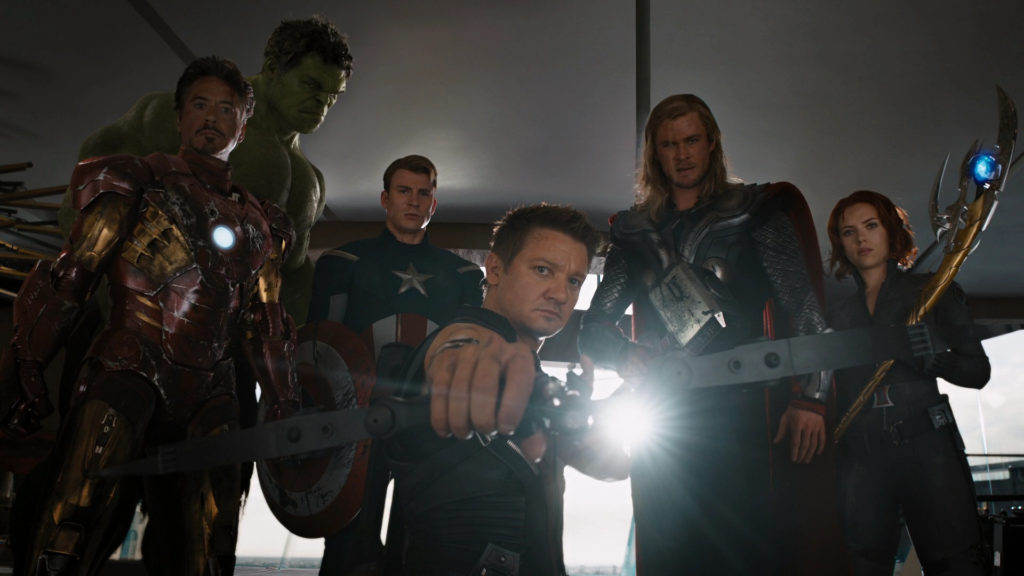
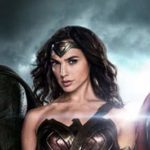
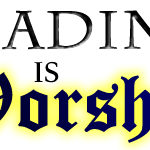
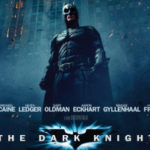
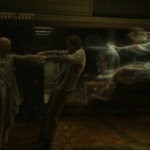



I see this sudden plethora of posts trying to fix something, and I’m looking at the same thing and thinking “It’s not even broke.”
When I look at the super hero movies for the past several years, I don’t see a lack of consequences in them.
In the Marvel movies, for example, what Stark sees in his brief look through the wormhole leads to him trying to protect the world on his own, thus creating Ultron, a being that, among other things, basically wipes out a city killing many people. This leads to someone manipulating the Avengers, in the process killing T’challa’s father, and causing a severe split between Stark and Cap because of the death of Stark’s parents years ago. Along the way, Shield gets disbanded, Quicksilver dies, Rhodey gets serious injured, and two of the strongest Avengers have gone missing. Thor and Loki’s mother is killed, and it’s still unclear what’s happened to Odin.
This also is something against the formulaic storytelling charge. Few movies have a less formulaic ending than Civil War, where the heroes are close to killing each other in the big final fight, and don’t make up at the end. And looked at overall, the story is hardly all bunnies and kittens. Friends have become enemies, organizations that were designed to defend and protect were used to destroy and so had to be disbanded, and the world’s trust in super heroes has been severely damaged because of destructive Hulk rampages and other examples of severe damages.
There have been some iffy decisions with villains, like making The Mandarin a kind of social media joke. But the Avengers movies (counting Civil War as more an Avengers than a Cap movie) have shown a nice diversity in their villains.
One of the strengths of Batman vs Superman, in my mind, was the unclear nature about where many characters stood for much of the movie. I thought this was most strongly shown with the Congresswoman. On the one hand, she wants Superman to answer for some of his actions, and be held accountable. On the other hand, she wants no part of Luthor’s plan to create a weapon to kill Superman. And for much of the movie, it could be said the Batman was more on the bad guys’ side than the good guys’.
Agreed that these significant developments can be overlooked.
However, for my part, I’d say the challenges arise from the recent Marvel films, the phase 3 ones. Even Captain America: Civil War shares some of these difficulties, by emphasizing quips over significance and “family drama” over other meta-themes (while Captain America: The Winter Soldier expertly blended them both together).
It’s not that the recent films are ignoring the deeper, significant stuff (or that they’re ignoring Character Deaths). It’s that they seem to want to play to the “jokey” side of things while still upholding plot dignity, and the tones clash.
I did appreciate the truly surprising turn in Thor: The Dark World, and in fact appreciate a lot about those now “older” Marvel films, including the first Thor and The Incredible Hulk, that most audiences have apparently rejected. Unfortunately this means we could be getting a soft-reboot of Thor that goes full-on Guardians of the Galaxy mode (color splashes, ’80s logo, classic rock) in Thor: Ragnarok. But I hope not.
I’m starting to think that the writing staff at SpeculativeFaith.com has become a bit too pretentious. You’re certainly overthinking things, and this trend of emphasizing science over art in storytelling does not bode well for Realm Makers. I have no intention of attending this year, a choice I made in part because of my growing dissatisfaction with the content on this site.
You seem to think that if you wouldn’t have written things the way they’re portrayed on film, they must be wrong. You decry formula while you chastise superhero films for not following a formula you have in mind instead. I’d rather appreciate and learn from their strengths and weaknesses.
NOTHING like the Marvel Cinematic Universe has been attempted. It breaks formula for existing at all. I’m actually surprised at the breadth of villains and heroes (with their characters developed and intact) and story lines they’ve managed to pull together – and pull together fairly well at that! – with pretty much nothing to guide them. Critics have complained that this movie (pick one) concentrated too much on setting up some future movie and then offered formulaic complaints about middle child movies in a series as if that fully addressed the enormity of the task at hand; however, do they consider that the architects of the MCU usually has to set up and complement plot points not only in the next sequential film but several off to the side and away, as it were? This is very much trial and error.
You might be bored or dissatisfied with what the genre’s doing right now, but painting these elements as actual problems (fist bump to Audie Thacker) just comes off as pretentious commentary.
And on a personal note, Zachary Totah, where do you get off claiming to adore the Dark Knight trilogy when you can’t even be bothered to spell “BANE” right? I could also add that in expecting Selena Kyle to feel guilt or gravitas over shooting BANE, you really didn’t comprehend her character in that movie. Her quip afterward, “The whole no-guns thing? I don’t feel as strongly about it as you do”, is a perfect callback to a scene where Batman insists, “No guns. No killing,” and she answers, “Where’s the fun in that?” It’s definitely in character for this portrayal of Catwoman (technically, The Cat in this film). Plus, it’s meant to underscore the fact that she just saved his life despite his ideological objection to her methods.